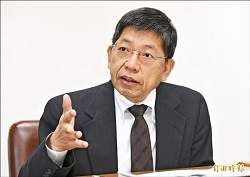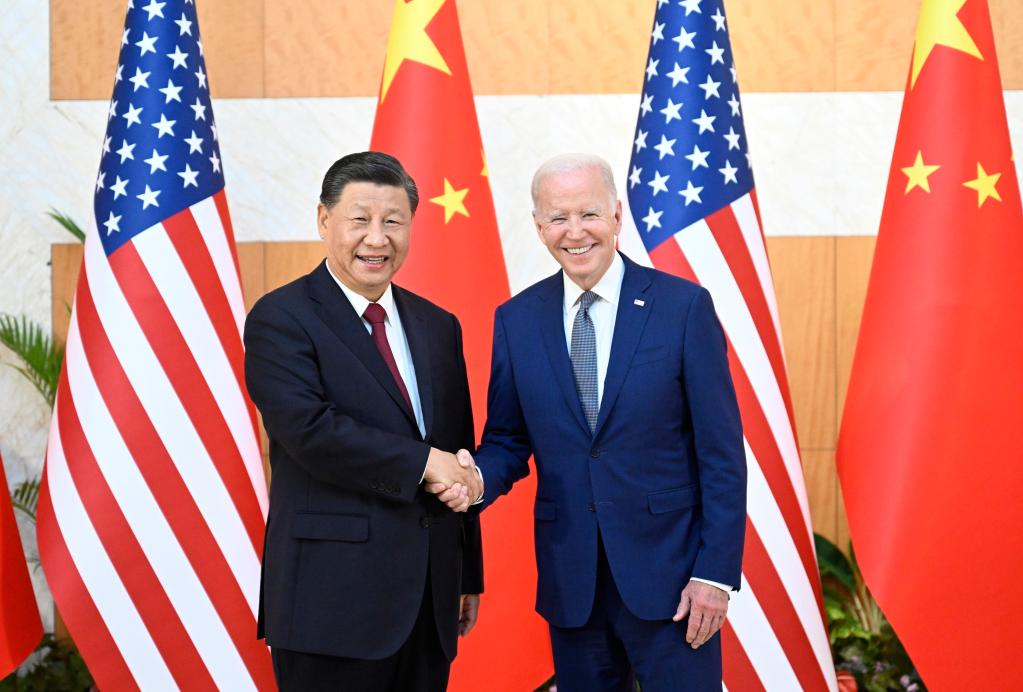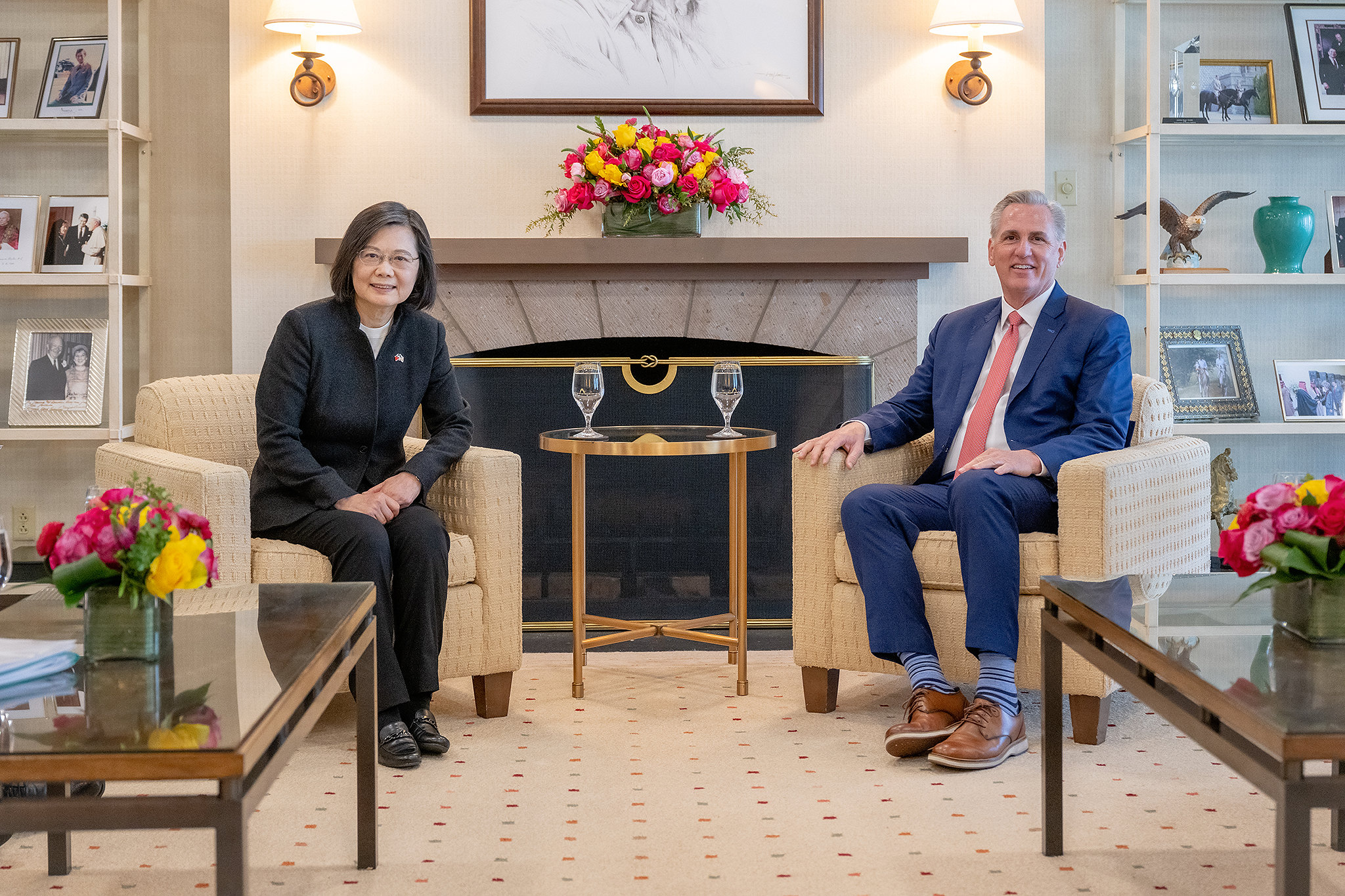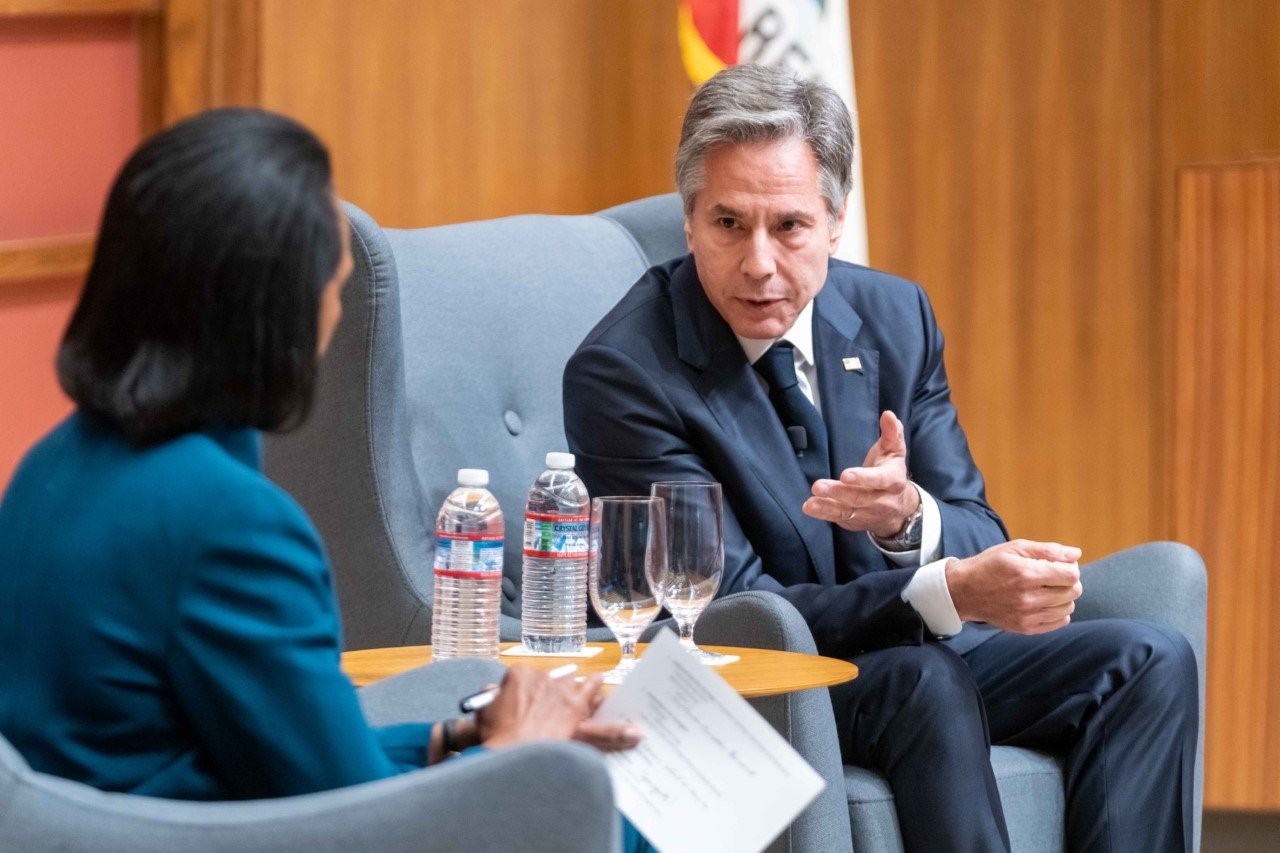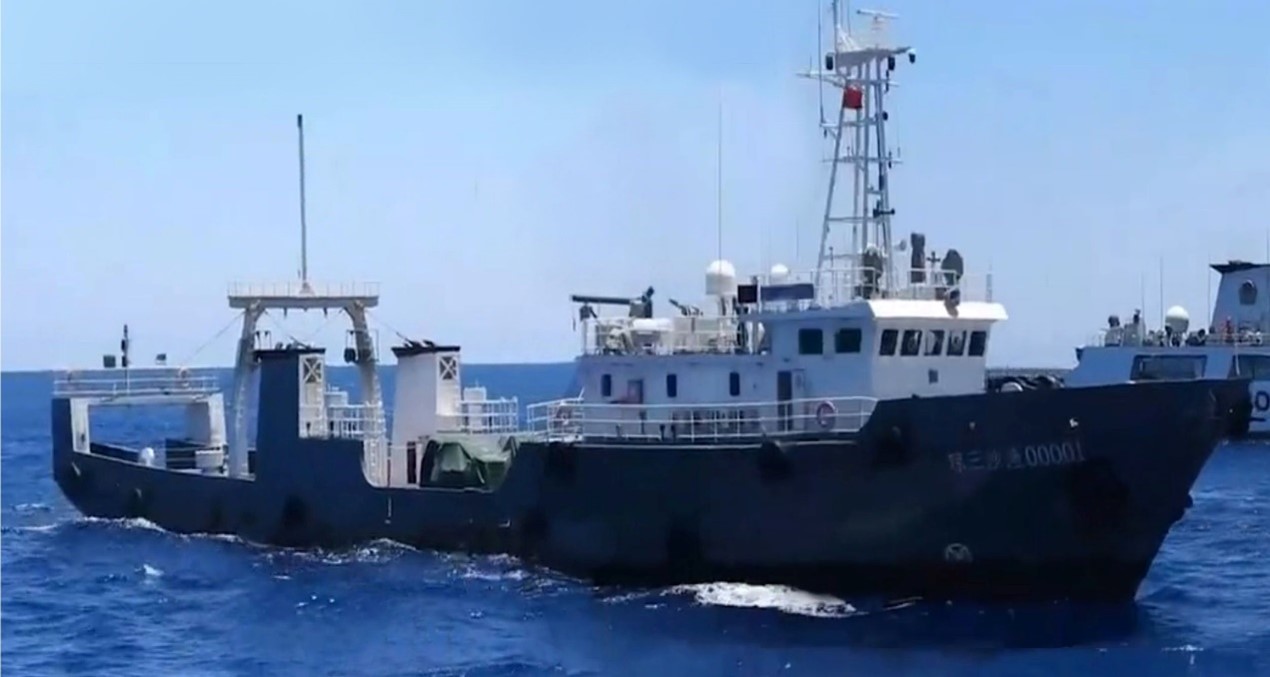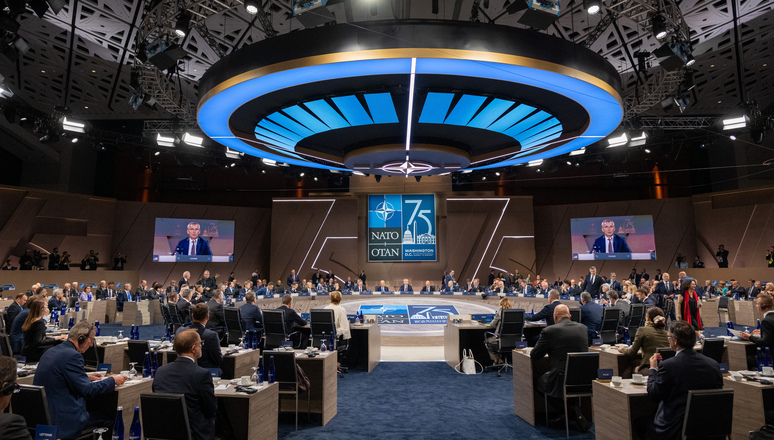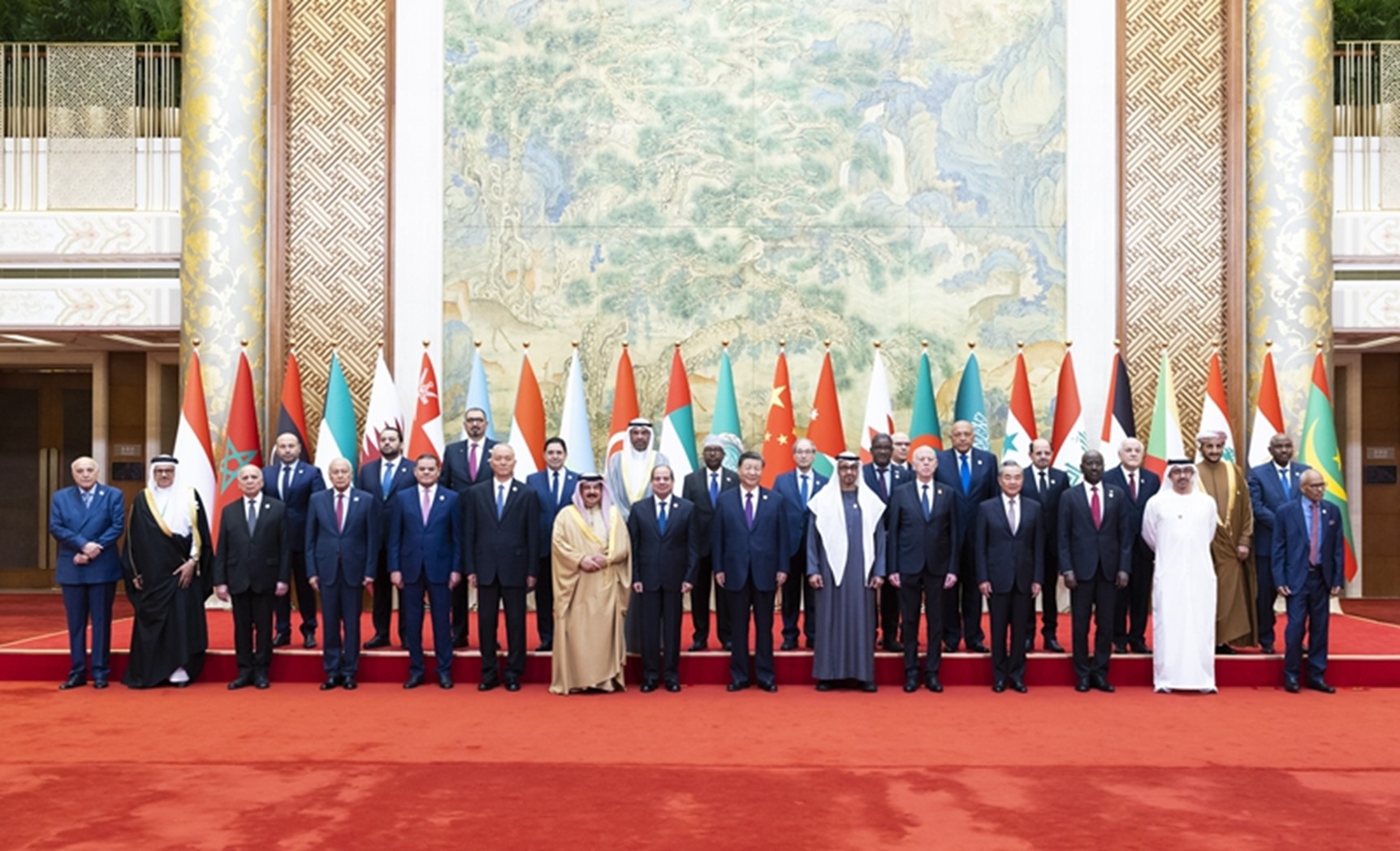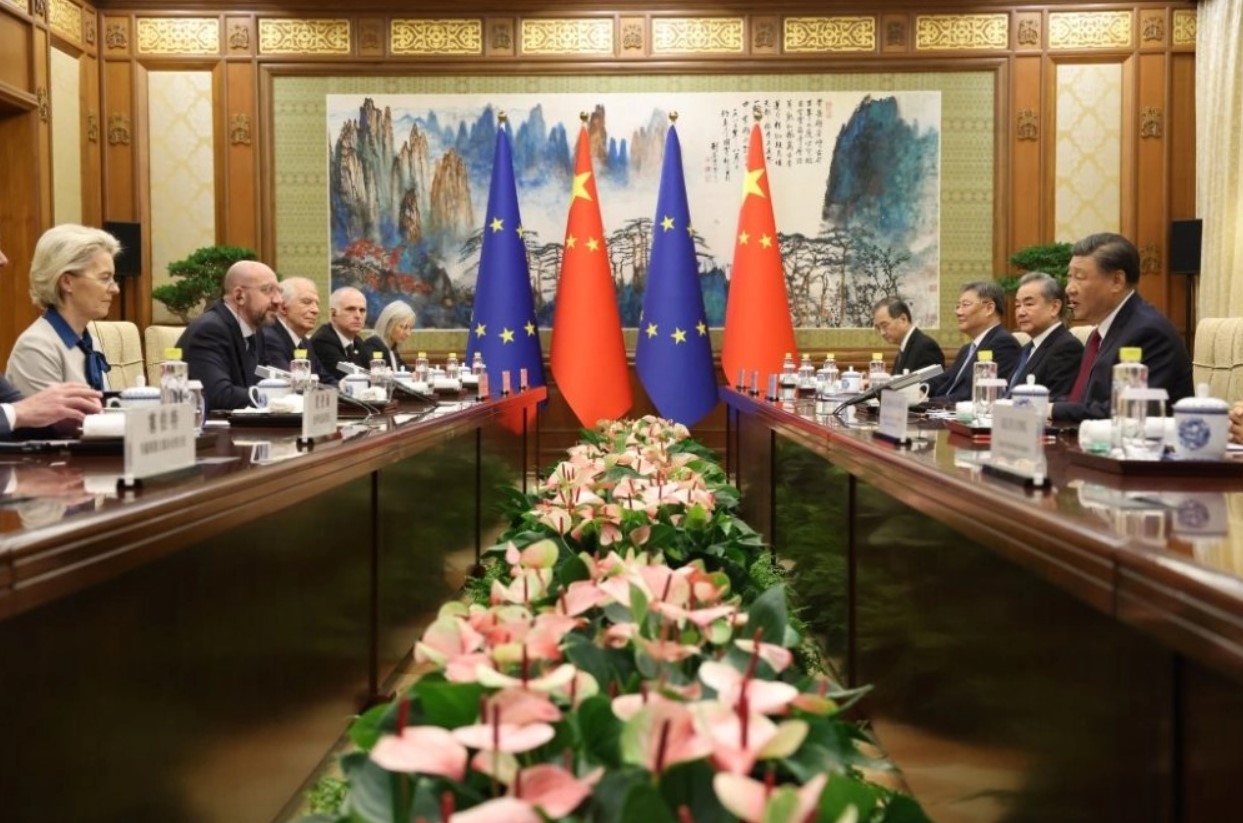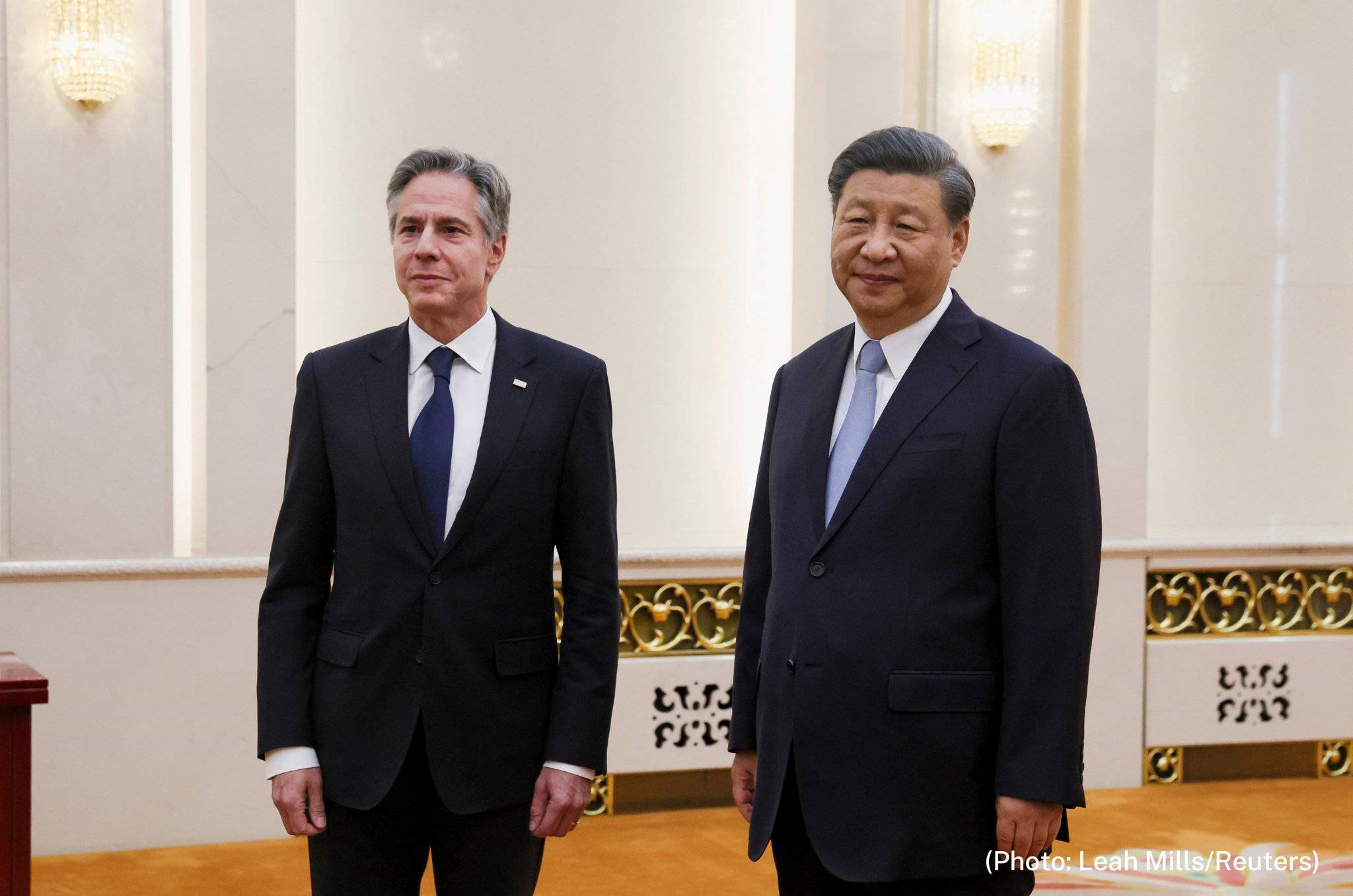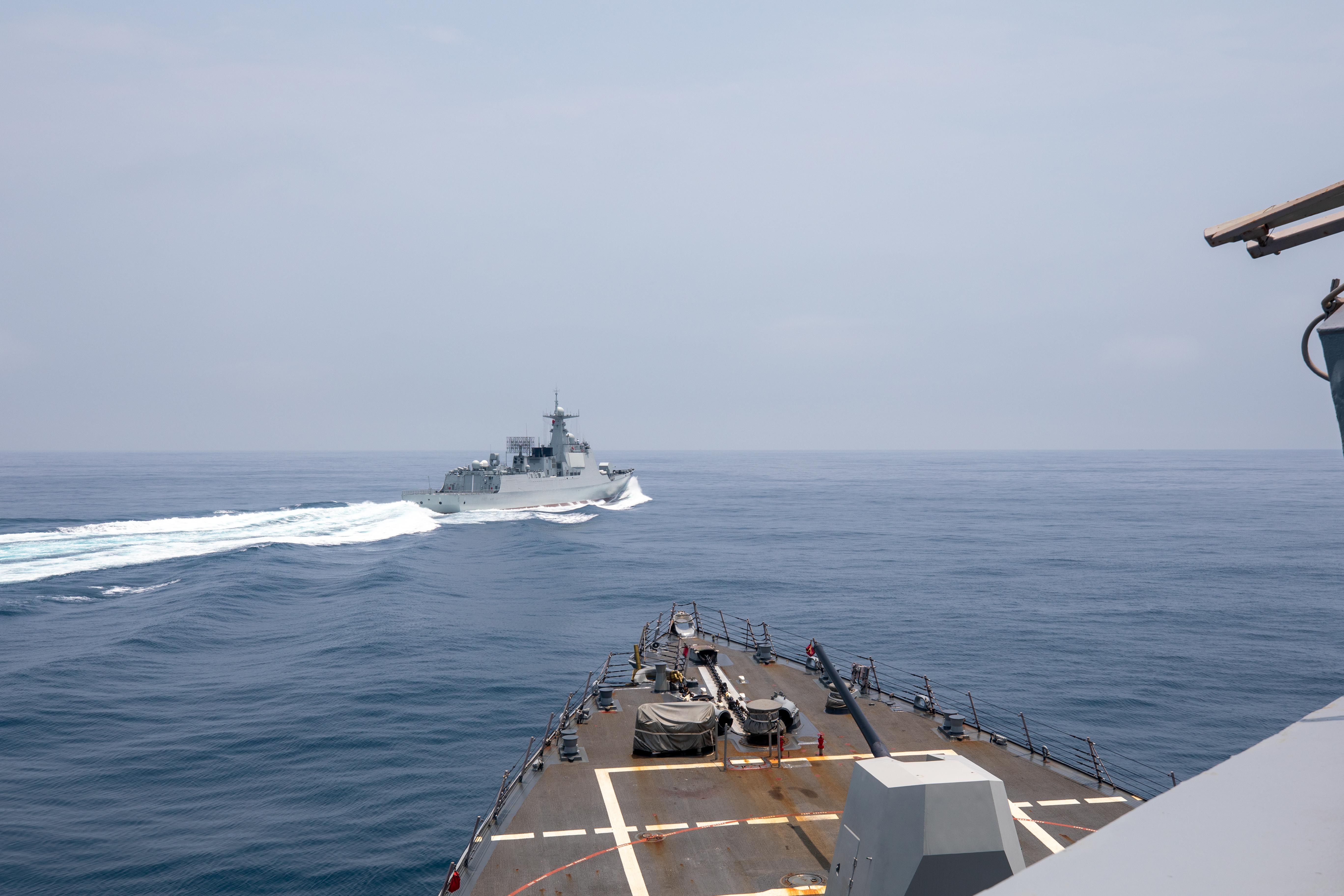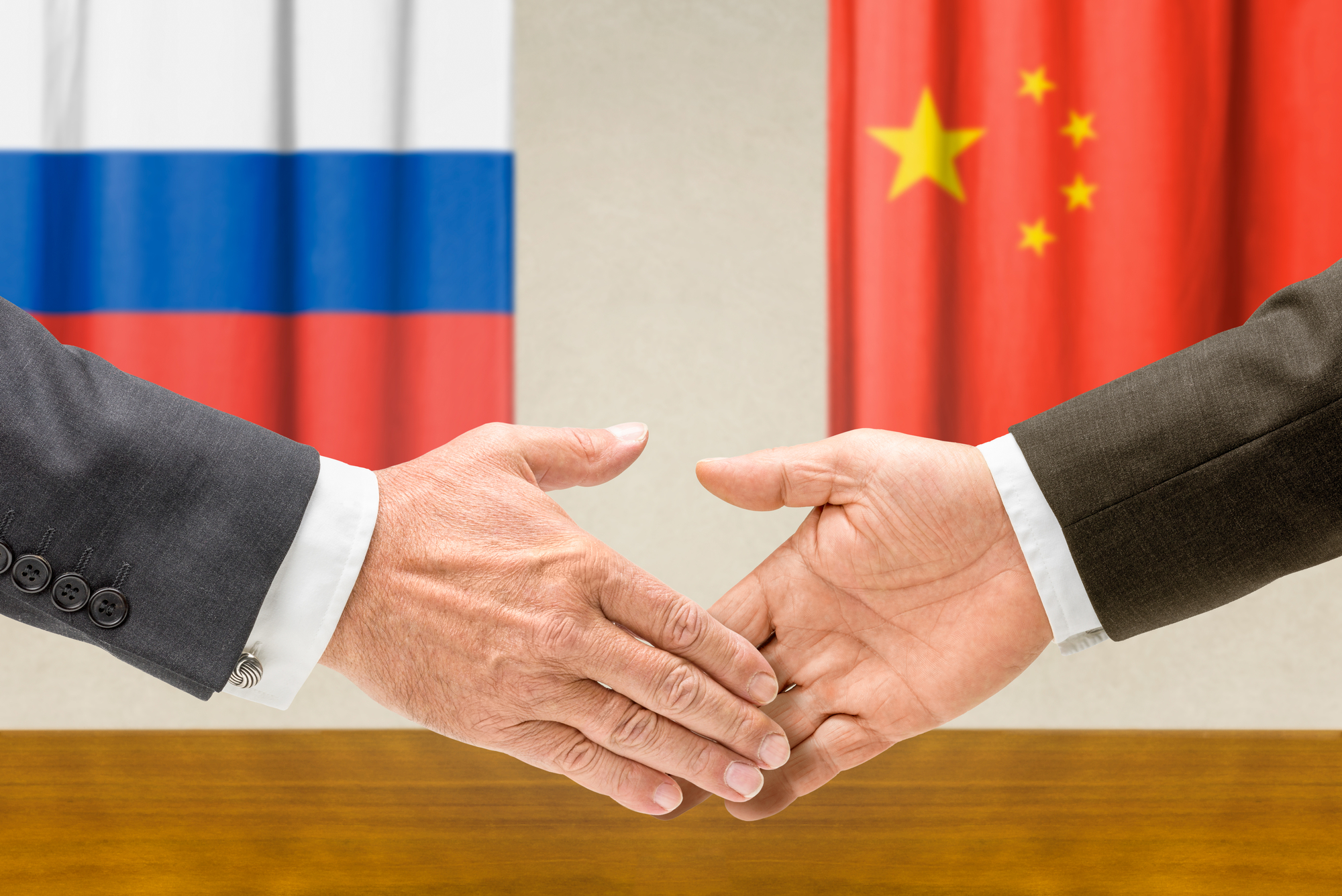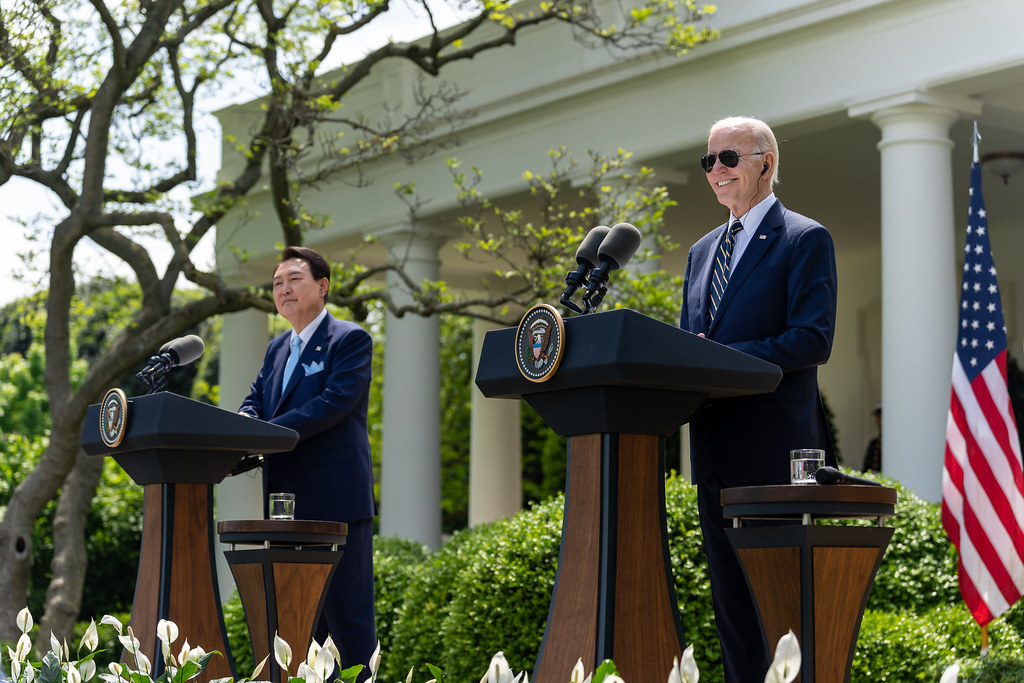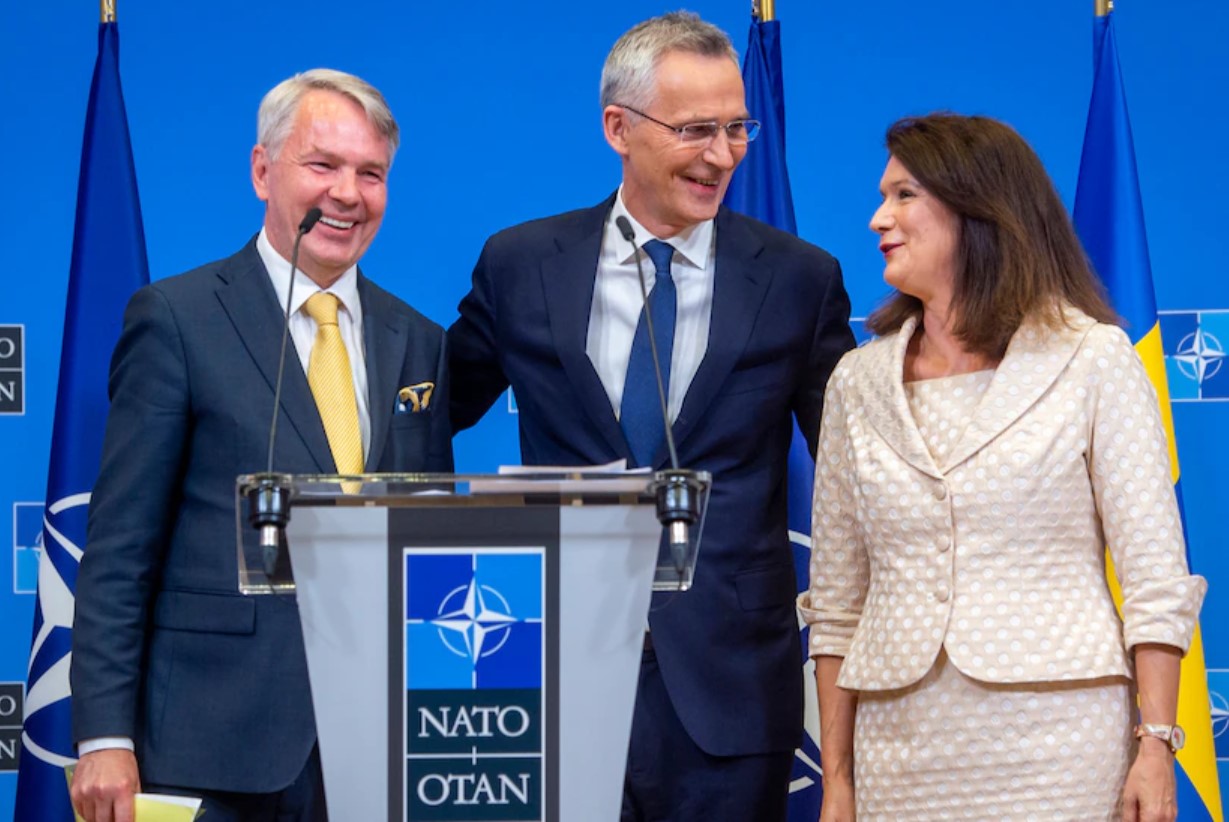After the meeting between Biden and Xi in Indonesia, the tensions between the United States and China over Taiwan’s August crisis have receded, but both powers continue their respective military activities in the Taiwan Strait.
Picture source: 李學仁, November 14, 2022, Twitter, https://www.hxw.gov.cn/content/2022/11/15/14020442.html.
The Significance of the Biden-Xi G20 Meeting
Prospects & Perspectives No. 74
By Cheng-yi Lin
Since President Biden took office, the U.S. and the People’s Republic of China (PRC) have remained on a bumpy relationship left over from the Trump administration on issues such as the Covid pandemic, trade and technology, and so on. Sino-American relations have continued to deteriorate due to Beijing’s position on Russia’s invasion of Ukraine and, in particular, House Speaker Nancy Pelosi’s visit to Taiwan in August. China’s disproportionate and escalatory military response in waters surrounding Taiwan alarmed the international community by raising the possibility of a military attack against the island nation.
Presidents Biden and Xi have known each other for a long time and had met on five occasions through virtual meetings before the G20 Summit in November 2022. With both presidents able to put major political developments at home behind them — the Chinese Communist Party 20th Congress and the U.S. mid-term elections — there were expectations of a reset to the downward spiral in the relationship between the two great powers.
Charged and Unchanged
President Xi told Biden that Taiwan is “at the core” of China’s core interest and the first “red line” the U.S. should not cross. Reaffirming Xi’s stern warning that cross-Strait stability and Taiwan independence are as irreconcilable as water and fire, Chinese Foreign Minister Wang Yi stated that should the three types of serious events that are stipulated in the Anti-Secession Law take place, China will “employ non-peaceful means and other necessary measures” against Taiwan. On the sideline of G20 summit, Xi was caught on tape chastising Canadian Prime Minister Justin Trudeau, which suggests that the Chinese leader has become the chief wolf warrior in Chinese diplomacy. Xi was also using the G20 to project the image that China is strengthening cooperation with developing countries by adhering to the concept of amity and sincerity through his proposed Global Development Initiative and Global Security Initiative. Xi simply showed that China will pursue international leadership by competing with the United States based on different systems and different interpretations of the rules-based order.
After the meeting between Biden and Xi in Indonesia, China resumed its unilateral suspension of Sino-U.S. cooperation, first initiated after Pelosi’s visit to Taiwan. This affected areas such as telephone calls between leaders of the two militaries, meetings of the maritime military security consultation mechanism, repatriation of illegal immigrants, criminal judicial assistance and negotiations over issues related to transnational crime, anti-drug, and climate change. A week after the Xi-Biden meeting, Chinese Defense Minister Wei Fenghe held talks with U.S. Secretary of Defense Lloyd Austin at the “ASEAN Defense Ministers’ Meeting Plus” in Cambodia.
President Xi wants to maintain communication with the United States, no less than the Biden administration. The tensions between the United States and China over Taiwan’s August crisis have receded, but both powers continue their respective military activities in the Taiwan Strait. The top-down decision-making model indicates the highest leader of the two countries are setting the tone and guidelines for their respective governments.
Secretary of State Blinken is expected to visit China in January 2023, and follow-up U.S. and Chinese ministerial visits can be expected. Before Xi’s meeting with Biden, from November 8 to 16, Wang Chao, president of the Chinese People’s Institute of Foreign Affairs, led a delegation to New York. Former commerce minister Chen Deming, former ambassador to the United States Cui Tiankai, director of the Institute of International Studies at Fudan University Wu Xinbo, and heads of solar and car companies were among the Chinese delegation members. The next step might be the resumption of trilateral Track II cross-Strait dialogue among Taiwan, China and in the United States by the New York-based National Committee on American Foreign Policy.
On regional security issues other than the Taiwan Strait, Biden has continued to call on Xi to not assist Russia, to help end the Russo-Ukrainian War as soon as possible, and to restrain North Korea’s Kim Jong-Un from testing missiles or nuclear weapons.
At the summit, in addition to repeating his position on “not supporting Taiwan’s independence,” Biden apparently said that the United States does not support the “two Chinas” and “one China, one Taiwan” policies. This is was unnecessary statement of policy, because Biden can say nothing other than “not supporting Taiwan independence.” By adding that the U.S. does not support “two Chinas” and “one China, one Taiwan,” Biden created future disadvantages for the United States. Biden should know that any promise will only whet China’s appetite, and that China will make progress next time by demanding additional political commitments from the U.S. on Taiwan. Biden said he does not see any sign that China will immediately use force against Taiwan, but he did not receive any concrete concessions from Xi on the Taiwan issue. If the Chinese navy maintain its deployment of four warships around Taiwan with no sign of military restraints, it will suggest that Xi has decided to not make any moderation or adjustment after Biden’s softening position toward China.
Preparations for the Future
President Biden absented himself from participating at the APEC informal summit meeting in Bangkok, Thailand, and sent Vice President Kamala Harris instead. Harris visited the Philippines after participating in the APEC annual meeting. When meeting with President Ferdinand Marcos Jr., Harris said that any attack on Philippine troops, public ships or aircraft in the South China Sea was an armed attack that would trigger the United States’ commitment to the mutual defense treaty with the Philippines. Harris went to Puerto Princesa in Palawan Island, and gave a speech on the Philippine Coast Guard patrol ship, claiming that the United States will provide an additional US$7.5 million in aid to the Philippine maritime law enforcement unit to strengthen its capacity to fight against illegal fishing, conduct maritime surveillance, and search-and-rescue activities in the South China Sea. On the eve of Harris’ visit, a Chinese coast guard ship forcibly snatched the wreckage of a Chinese rocket that had been originally towed by the Philippines in the waters near Pagasa (Thitu) Island. President Marcos told media that he intended to file a diplomatic protest with China over the incident.
Under the Enhanced Defense Cooperation Agreement with the Philippines, the United States proposed to construct military facilities in in Cagayan Province, in the northern Philippines and Palawan Island, which are close to Taiwan and the South China Sea respectively. China designated a targeted military zone between Taiwan and the Philippines in the live-ammunition exercise in August 2022. The Philippines has been concerned about almost daily Chinese intrusions into Taiwan’s Air Defense Identification Zone and regular crossings of the median line in the Taiwan Strait. With China’s military coercion near the Philippines becoming a new normal, Manila cannot simply sit idly. As Japan and the United States prepare themselves with increased military deployment in the southwestern islands of Japan, the U.S. also hopes that the Philippines could play a logistic role in times of crisis in the Taiwan Strait.
(Cheng-yi Lin is Research Fellow, Institute of European and American Studies, Academia Sinica.)

